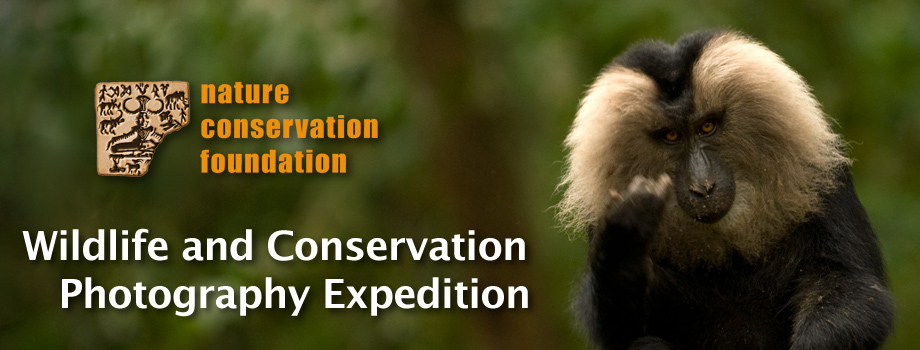Frequently Asked Question
Why is the price of the workshop so high ?
This is meant to be a low-impact high-value expedition. Value in terms of the difference that it can make more than the monitory aspects. Since its an exclusive small group expedition, and since all your accomidation/food and travel is taken care, the end profit is really not much and we want that end profit to help Nature Conservation Project (NCF) with some of their work in the Rainforest Restoration program.
What makes this photographic workshop different from other workshops?
Our photographer's workshop features
Input, suggestions and informal instruction from wildlife photographer Kalyan Varma
Casual lectures, briefings or workshops appropriate to each day's activities
Flexible instruction topics to suit photographers of any skill level
Luxury accommodations in British style Bungalow (each with full amenities, allowing you to safely store, recharge, clean and maintain your equipment).
Pacing that will suit everyone's photographic needs.
An environment conducive to learning from one another - no question is off limits, no inquiry too basic.
How will be the weather ?
Winter will just be setting during Nov. Being in tropics, it will not be too cold and since the monsoons would be over by then, its not wet either.
What camera gear are we expected to bring ?
Since this is a wildlife photography expedition, the following gear is recommended.
A Digital SLR body
A zoom lens (300mm or more)
A macro and a wide angle lens
Tripod
Flashes or Strobes (for night photography)
What other stuff do we need to bring ?
Forest friendly dull colors clothes
At least 2 pairs of cloths per day as you will get wet atleast once a day
Good hiking shoes and one sandals
Rainjacket to cover your head and rest of the body as much as possible. You can also choose to get rain pants and ponchos
What is NCF and what does it do ?
Nature Conservation Foundation (NCF) is devoted to science-based and socially responsible conservation of India's wildlife and natural ecosystems. NCF is a non-profit organization that believes in carrying out innovative research into conservation issues and translating this knowledge of ecology and society into imaginative and locally-appropriate on-ground solutions.
Established in 1996, NCF has highly-qualified and motivated conservation scientists working in a range of wildlife habitats, from coral reefs and tropical rainforests to the high mountains of the Himalaya. Here, they strive to understand the survival needs of highly endangered wildlife such as snow leopards and elephants as well as equally fascinating but lesser-known species of plants and animals. A major area of NCF's research is human use of natural resources and its impacts on wild species and ecosystems. Its work has also led to the discovery of new species to science and to India. Conservation efforts emerging from research are implemented in collaboration with local communities who depend the most on natural resources, other partner organisations, and governments. While promoting wildlife conservation, the programmes also strive to safeguard livelihood and development options for local communities.
How is the money raised through this program used for conservation ?
The Rainforest Restoration program is the hallmark of NCF's work in the western ghats. The future of wildlife conservation and habitats not only depends on protecting our existing habitats but also regaining and improving fragmented and degraded forest patches. NCF's western ghats program has more than 35,000 plant samplings in the nursery which are planted year after year in degraded forest fragments. The program also looks in human-wildlife conflicts in and around the Valparai area. The money raised from this program directly goes into supporting these projects by NCF.
Can we participate on the conservation projects
NCF Rainforest Program regularly needs help especially during the monsoon season when most of the planting happens. Work involves collecting native seeds from the roadsides, planting them in the nursery, regularly weeding the restoration plots and ofcourse actually going and planting these trees. If you would like you help the program in anyway, kindly contact podocarp@vsnl.net
What are endemic species ? whats so special about them ?
Endemic species are species which are exclusive to an area and are not found anywhere else in the world. Endemic species are very specialised to live in very specific habitats. Western ghats has many endemic birds, mammals, plants, reptiles and amphibians. Many of them are found in and around the Anamalai region and there is a good chance to see these rare species.
Are there any dangers in the field ?
You are at all times are with well trained wildlife experts in the field. The forests are home to many large mammals like tigers and elephants, but also some smaller venomous snakes. Most snakes are harmless and if you are wearing shows and pants, you are absolutely safe from any snake bites.
Back to the expedition
| |
